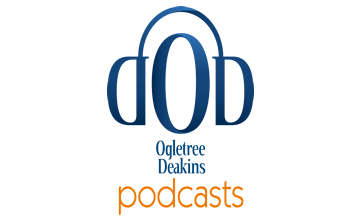Podcast: Play in new window | Download (Duration: 13:16 — 18.2MB) | Embed
Subscribe: Apple Podcasts | Spotify | TuneIn | More
In this episode of our Cross-Border Catch-Up podcast series, Shirin Aboujawde (New York) and Patty Shapiro (San Diego), both of whom are members of Ogletree Deakins’ Cross-Border Practice Group, discuss Status of Forces Agreements (SOFAs). SOFAs are treaties that allow members of the U.S. armed forces and their dependents, as well as government contractors to operate in foreign countries with specific exemptions, such as special immigration status and tax exemptions. Shireen explains the intricacies of SOFAs, their application, and the importance of careful due diligence. The episode provides valuable insights for employers navigating the complexities of SOFA status for their employees abroad.
